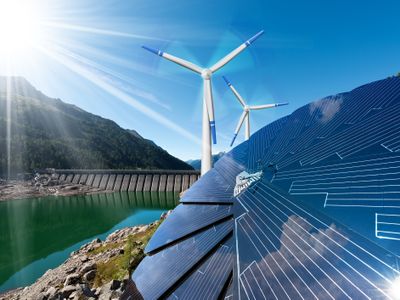Se kursinformationen på engelska.
SK184N Environmental Physics 9.0 credits

This e-course covers atmospheric and geo-physics, carbon cycle, nuclear and renewable energy, Green-house effect, among other topics. The emphasis is on understanding the relevant physical principles for solving practical problems.
VT26: reg-info HAS BEEN emailed to admitted students on Jan'7. No email by course start? Check spam then contact teacher. Course is 100% online, done in own tempo. Admission solely via www.antagning.se. Late LADOK reg. is via kursexp@physics.kth.se
Literature
The course follows the textbook "Environmental Physics, Sustainable Energy and Climate Change", by E. Boeker and R. van Grondelle, Wiley 2011 (3rd edition). The textbook is avalable as e-text (English) for free for enrolled students (via KTHBib). A brief compendium based on an earlier edition of the book and a set of practice problems with solutions are available within the on-line examination system as additional study material. The textbook, study materials and exams are in English; course administration, teacher communication - in English or Swedish.
Examination and grading
The contents and grading are subdivided into 3 Parts (TEN1,2,3). Each Part gives 3hp and is examined via 3 tests/chapters. The entire course credit of 9hp consist of the sum of the points from the three Parts. All details are in the on-line examination system after enrollment. Study and examination entirely online, no physical presence required at any time during the course.
Enrollment and registration
Course application is exclusively via www.antagning.se - no applications can be accepted by KTH directly. Those admitted by antagning.se (or placed in reserve) will be email-notified by KTH on how to self-register a study account and enroll in the course.
Admissions Office at KTH
Email: info@kth.se
Tel: 08-790 94 40 (check mån 13-14, tis-tors 10.00-11.00)
Other questions
Email: vk at kth.se (english/svenska)
Information per course offering
Information for Spring 2026 Start 13 Jan 2026 single courses students
- Course location
AlbaNova
- Duration
- 13 Jan 2026 - 1 Jun 2026
- Periods
Spring 2026: P4 (4.5 hp), P3 (4.5 hp)
- Pace of study
33%
- Application code
10234
- Form of study
Distance Daytime
- Language of instruction
English
- Course memo
- Course memo is not published
- Number of places
Max: 25
- Target group
- No information inserted
- Planned modular schedule
- [object Object]
- Schedule
- Schedule is not published
- Part of programme
- No information inserted
Please note that Students not located in Sweden may have problems attending a course at KTH.
You could meet obstacles if you're required to pay fees or if you do not have a Swedish Mobile BankID.
Contact
Course syllabus as PDF
Please note: all information from the Course syllabus is available on this page in an accessible format.
Course syllabus SK184N (Spring 2016–)Content and learning outcomes
Course disposition
Course contents
Solar energy, the carbon cycle, the Green-house effect, fossil-fuel energy, heat engines, nuclear power, fission and fusion, renewable energy from sun, wind, water, biosources, environmental pollution in air, water, noise and radiation, climate changes, sustainable development.
Intended learning outcomes
The course covers the physics of solar energy, the carbon cycle, carbon-based, nuclear, and renewable energy, the Green-house effect, and how mankind affects the environment. The emphasis is on conceptual understanding of the relevant physical mechanisms.
The student will learn to:
- solve problems regarding the solar radiation, the Earth's carbon cycle and the Green-house effect
- discuss the structure of the atmosphere and the biospheric radiation balance
- perform calculations on conventional carbon-based and nuclear energy
- explain and make estimates on renewable energy sources - solar, wind, water, and bio
- discuss acousticcal and electromagnetic effects on the environment, various sources of pollution, as well as aspects of sustainable development of mankind
Literature and preparations
Specific prerequisites
Basic eligibility for university studies.
Literature
Environmental Physics, Sustainable Energy and Climate Change, E. Boeker and R. van Grondelle, Wiley 2011 (3rd edition).
The textbook is avalable as e-text (English).
Examination and completion
Grading scale
Examination
- TEN3 - Exam, 3.0 credits, grading scale: A, B, C, D, E, FX, F
- TEN2 - Exam, 3.0 credits, grading scale: A, B, C, D, E, FX, F
- TEN1 - Exam, 3.0 credits, grading scale: A, B, C, D, E, FX, F
Based on recommendation from KTH’s coordinator for disabilities, the examiner will decide how to adapt an examination for students with documented disability.
The examiner may apply another examination format when re-examining individual students.
If the course is discontinued, students may request to be examined during the following two academic years.
Other requirements for final grade
Three written exams: TEN1, 3 hp, grading scale A-F; TEN2, 3 hp, grading scale A-F; TEN3, 3 hp, grading scale A-F.
Examiner
Ethical approach
- All members of a group are responsible for the group's work.
- In any assessment, every student shall honestly disclose any help received and sources used.
- In an oral assessment, every student shall be able to present and answer questions about the entire assignment and solution.
Further information
Course room in Canvas
Offered by
Main field of study
Education cycle
Supplementary information
The course is a distance online course and is applied via antagning.se for both program students and external students who want to read the course.